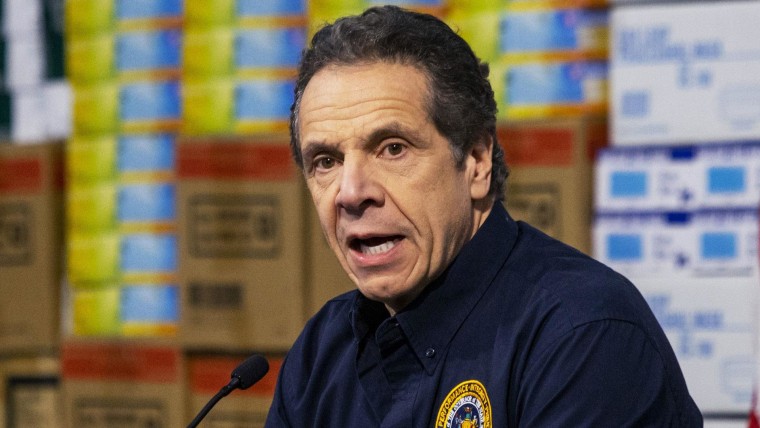But I feel actually confident that if this infection acts like every other infection that we understand, as soon as you get infected, get better, clear the virus, then you will have resistance that will protect you versus reinfection.”
Let our news satisfy your inbox. The news and stories that matters, delivered weekday early mornings. Whether
that security will be long term depends on a variety of aspects, specialists say. Related The first is whether the virus mutates. If
steady, those who have had it have a high possibility of being able to “stop it at the door”if they are exposed to it a 2nd time since the antibodies in their blood will acknowledge it and prevent it from reproducing in their bodies, Lund said. But the coronavirus is an RNA infection, suggesting its
genetic material is comprised of RNA, not DNA. And RNA viruses tend to alter with time: Seasonal influenza, another RNA infection, usually changes from year to year.” That’s why every year, there’s a new vaccine for the influenza,”stated Dr.
Tim Schacker, an infectious illness physician and vice dean for research at the University of Minnesota’s medical school. “Influenza has actually been here permanently; you’re making antibodies to some parts of the infection all the time, but it’s the unique parts of the infection that you want to have antibodies to.”Because this”coronavirus is a brand new virus,”Schacker stated, everybody is vulnerable to
every part of it. The other element in preventing reinfection is how great the antibodies are that individuals are making versus the coronavirus. People almost always make antibodies when exposed to an infection. Not every antibody is effective enough to obstruct a virus from contaminating cells once again– and scientists have yet to find whether the coronavirus antibodies are high-quality ones. “Do they neutralize the infection, which implies binds to a very particular place on the infection that will prevent the infection from attaching to the cell it would normally contaminate?”Lund said.
Even if the antibodies can this, the resistance they offer might subside over time.”Because this is so brand-new, it’s tough to forecast what’s going to happen,” stated Joel Baines, a virologist at Louisiana State University.”There’s going to be a duration of resistance, and it could be as low as 8 months to a year, and as long as a number of years. “”All of that is in your garden variety infection. We simply do not know yet what’s going to occur with this infection.”
This duration is called immunologic memory, Schacker stated, and is dependent upon the plasma cells that make antibodies dividing and
remaining in your blood for some time.”So if you get re-exposed to that pathogen, and you have an enough variety of cells to make antibodies, then you are secured from reinfection,”he stated.”But all of that is in your garden variety infection. We just don’t understand yet what’s going to occur with this infection.” Download the NBC News app for full protection of the coronavirus break out There are hopeful indications about the quality of the coronavirus antibodies that the body makes. Trial
treatments using convalescent serum, or antibody-rich plasma donated from recovered coronavirus clients, have shown guarantee on very ill patients– so much so
that New York Gov. Andrew Cuomo announced a strategy to use the speculative treatment in his state, the hardest struck in the U.S., in an effort to save lives. The serum works by offering the patients’own antibodies a help against the coronavirus, and might also offer their body immune system a break, allowing it to decrease some of the inflammatory response it has produced to the infection, Lund stated. While initial results have scientists positive, the professionals caution that more studies
are required prior to making any conclusions about the coronavirus and resistance.”Viruses have actually been around an actually, really long period of time, and they are not dumb,”Lund said. “They have found out what they need to do to grow.” Follow NBC HEALTH on Twitter & Facebook. Elizabeth Chuck Elizabeth Chuck is a press reporter for NBC News.
Those who recuperate from the coronavirus are probably not going to catch it again, a minimum of in the short term, experts say. It’s unclear how long that immunity will last.
“It is reasonable to anticipate we will have some resistance. To state you will have lifelong immunity? We simply do not know yet,” said Frances Lund, professor and chair of the department of microbiology at the University of Alabama at Birmingham. “But I think it’s a sensible conclusion that you will have resistance for the rest of this season.”
Let our news meet your inbox.”All of that is in your garden range infection.. Elizabeth Chuck is a reporter for NBC News.
Full protection of the coronavirus
break out The secret to immunity lies in the antibodies produced by individuals who have recuperated from COVID-19, the disease brought on by the coronavirus.

Keine Kommentare:
Kommentar veröffentlichen